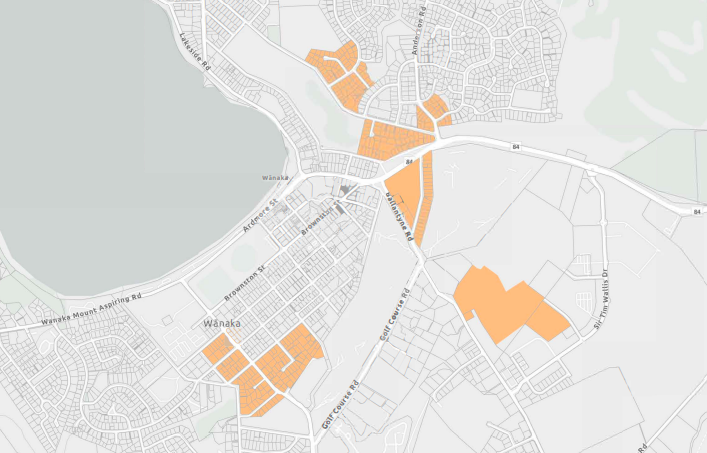Council proposes major changes to urban density rules
Maddy Harker
30 May 2023, 5:06 PM
 QLDC has proposed a series of changes which would allow for increased density and building height in the district’s urban areas. PHOTO: Supplied
QLDC has proposed a series of changes which would allow for increased density and building height in the district’s urban areas. PHOTO: SuppliedResidential development in Wānaka will allow for increased density and building height if a new Urban Intensification Variation is approved.
Queenstown Lakes District Council (QLDC) councillors will consider the variation - which would mark a substantial change in urban zoning - at tomorrow’s (Thursday June 1) council meeting.
Under the proposal, the regulations for Lower Density Suburban Residential (LDSR) zones would change to allow for building height up to 8m in most cases and in Medium Density Residential (MDR) zones heights of 11m (+ 1m for pitched roofs).
In the MDR zone, the proposed changes would also allow for a wider range of residential housing types, like units and low-rise apartments.

As part of the variation, QLDC wants to rezone the areas highlighted in orange from Lower Density Suburban Residential (LDSR) to Medium Density Residential (MDR). IMAGE: QLDC
The proposal includes rezoning areas of central Wānaka and Three Parks from LDSR to MDR (as well as at some locations in Queenstown).
QLDC senior planner Elias Mathee said the Urban Intensification Variation aimed to enable a “diverse range of housing typologies” in suitable locations to provide for “greater housing choices”.
“Allowing for increased densities in the existing urban environment will enable the development of smaller and attached housing typologies which typically have a smaller land area,” Elias said.
“Increasing opportunities for intensive developments will assist with enabling a more diverse urban housing stock, including smaller, more affordable homes.”
QLDC acting general manager David Wallace said the district was facing considerable growth pressure and high demand for a range of housing types, but council’s current planning system has a limited ability to enable them.
This variation would enable growth through intensification “as opposed to urban sprawl,” he said.
Similar housing intensification plans in New Zealand’s major cities have proven controversial, with concerns raised about the impact of multi-storey housing on neighbours viewshafts and sunlight.
Other concerns, in places like Christchurch, where councillors recently voted against publicly notifying the housing intensification legislation, included the effect on the character of communities and the additional pressure on infrastructure.
David acknowledged there would be “apprehension” over the variation.
He said the variation included provisions “to ensure appropriate residential amenity is maintained” and any proposed development could be appropriately serviced.
If councillors endorse the Urban Intensification Variation tomorrow, it will be notified in mid July 2023 and then open for public submissions.




